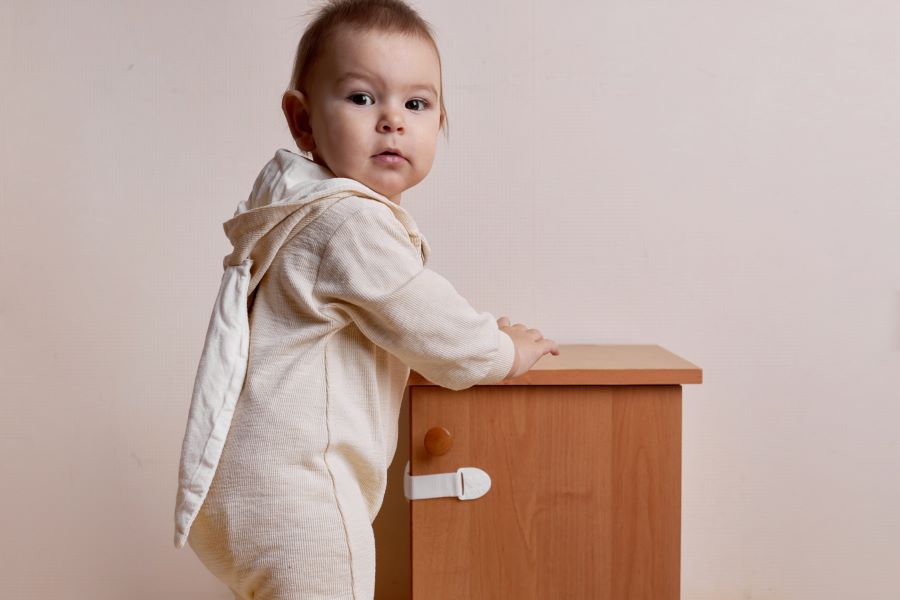Babyproofing Best Practices for Everyday Parenting


Creating a safe environment for your baby is not a one-time event. In reality, babyproofing is a constant effort that goes on long after installing the childproof locks on your cabinets and putting in outlet plugs. Incorporate these tips into your daily routine to help prevent injury to your baby:
Tidy your home regularly, getting on your child\’s eye level to remove small objects such as coins, pen caps, paperclips, etc.
Don\’t place infants on beds, couches, or other soft surfaces where they may roll off easily.
When changing your child’s diaper, secure all straps on the changing pad and never leave your child unattended.
Follow product recommendations. For example, if an infant seat is recommended for the floor only, do not place it on the counter.
Stay abreast of product recalls, and repair or replace defective products according to manufacturer recommendations.
Throw away outdated medications. Always store medications out of your child’s reach.
Cut foods (hot dogs, grapes, etc.) that could lodge in a child\’s throat into appropriately sized pieces, or avoid them altogether.
When cooking, use the back burners, and keep pot handles turned to the back. Don’t leave knives sitting within reach.
When bathing your child, the water temp should not exceed 100°F, according to the National Safety Council.
Do not leave your child unattended in the bathroom. Children can drown in the toilet bowl, in addition to the bathtub.
Don\’t leave razors in the bathtub where your child can reach them.
Do not allow your child to run with lollipops or lie down while consuming hard candy.
Follow the American Academy of Pediatrics\’ recommendations for infant sleeping position: an infant should always be put to sleep on the back, never on the stomach, to reduce the risk of Sudden Infant Death Syndrome (SIDS).
Remove mobiles from your child\’s crib when he or she is able to reach it to avoid strangulation.
Check smoke alarms regularly, and replace batteries as needed.
Keep windows locked, and use window guards.
If your home has a swimming pool, practice pool safety.
Your baby proofing will change as your child’s development progresses. Adjust as necessary.
Sources:
- National Safety Council
- Baby-Proofing Your Home.
Powered by Bundoo®










































